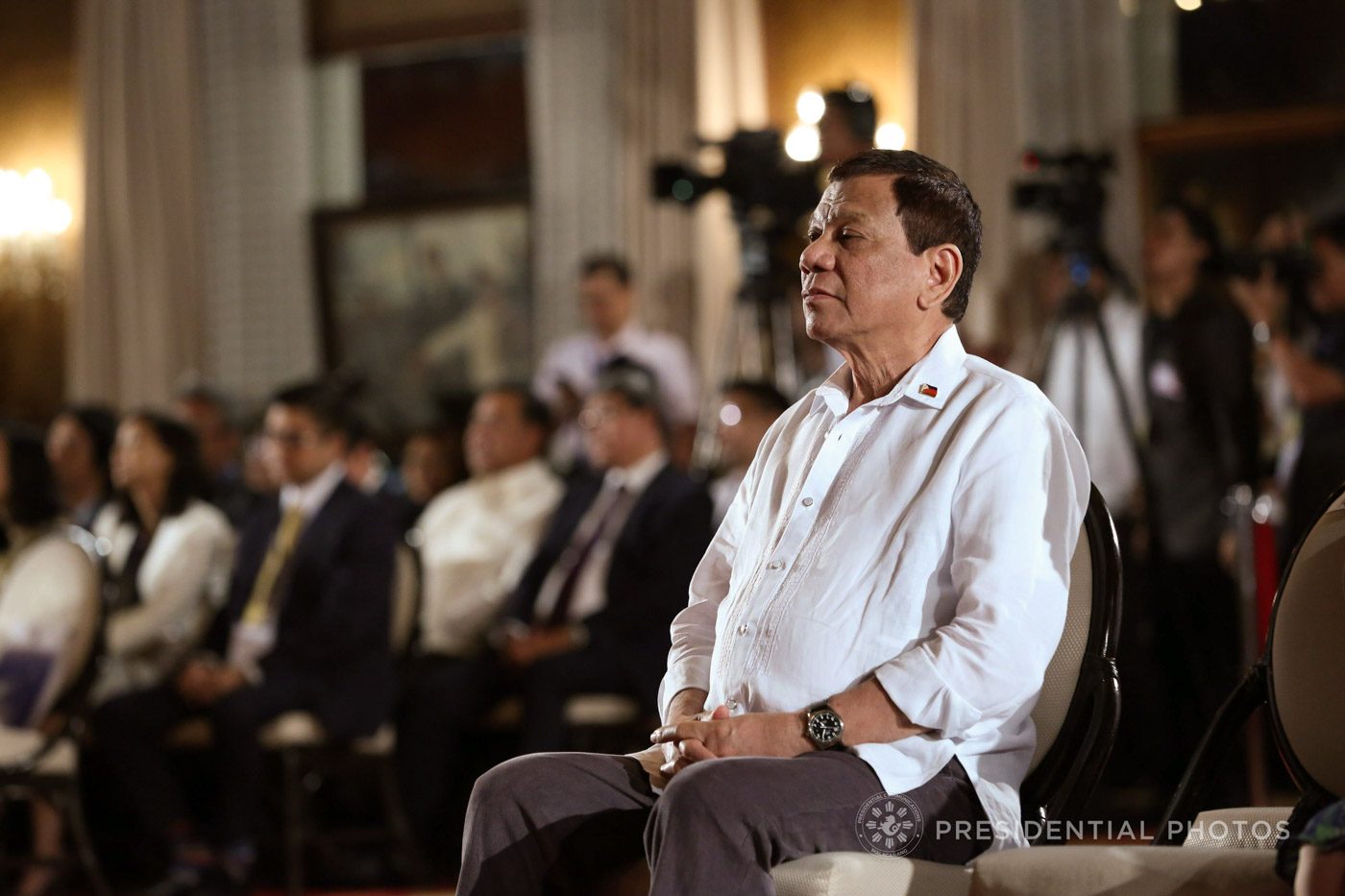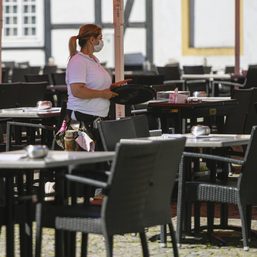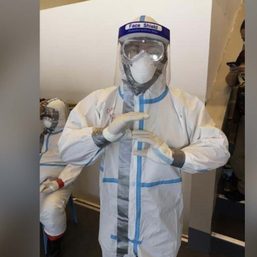SUMMARY
This is AI generated summarization, which may have errors. For context, always refer to the full article.

MANILA, Philippines – Addressing critics on Wednesday, February 7, President Rodrigo Duterte said he was a dictator because he thinks only a dictator can do something for the Philippines.
It was a statement that contradicted earlier ones, wherein he insisted he would “not become a dictator.”
So is he, or isn’t he? It seems even his allies in the “supermajority”-led House of Representatives don’t quite agree.
House Majority Leader Rodolfo Fariñas, in a message to reporters on Friday, February 9, spelled out the following definitions for “dictator”:
1. a person exercising absolute power, especially a ruler who has absolute, unrestricted control in a government without hereditary succession.
2. (in ancient Rome) a person invested with supreme authority during a crisis, the regular magistracy being subordinated to him until the crisis was met.
3. a person who authoritatively prescribes conduct, usage, etc.: a dictator of fashion.
4. a person who dictates, as to a secretary.
“Obviously, he is one as to definition numbers 3 and 4; but not number 1 as he is NOT ‘exercising absolute power, especially a ruler who has absolute, unrestricted control in a government without hereditary succession.’ Neither does he fall under definition number 2,” he said.
Another ally, AKO Bicol Representative Rodel Batocabe resorted to his own “definition” of the word, touting Duterte as a leader who is not afraid to against the status quo.
“If a dictator means having the political will and guts to do what he thinks his right for the benefit of the silent majority despite strong opposition from a noisy minority, then he is a dictator. If a dictator means going against traditions and fighting well-entrenched establishments and exposing them for what they are, he is a dictator,” he said, in a separate message to reporters.
“And finally, he is a dictator for saying and doing things we are too afraid to say and do in public but we all want to say and do. He is a dictator for having such courage to go against well- established political norms land institutions like the us and eu as well as the church which past democratic presidents could not even try not even in their dreams,” he added.
‘Dictator’ defined
Encyclopedia Britannica defines a dictatorship as a “form of government in which one person or a small group possesses absolute power without effective constitutional limitations.”
“Dictators usually resort to force or fraud to gain despotic political power, which they maintain through the use of intimidation, terror, and the suppression of basic civil liberties. They may also employ techniques of mass propaganda in order to sustain their public support,” according to its website.
Duterte was elected by a plurality of Filipinos during the May 2016 elections. He got more than 16 million votes, with his next-closest opponent behind over 6 million votes.
The Philippine president, who was controversial back in the campaign and continues to be a polarizing figure, has been criticized repeatedly for his apparent disdain for human rights, and threats against human rights groups and workers. He has also been criticized for sexist jokes. The Palace has told feminists to “just laugh” at Duterte’s “funny” jokes.
The former Davao mayor in 2016 campaigned on a promise to be tough on crime, eradicate drugs, get rid of corruption in government, and push for a federal form of government. He denied then that he would be a dictator.
“The People of the Republic of the Philippines democratically elected a strong President. So what’s the issue? The guy is just being true to form. He never lied about how he would run the country,” said PBA Representative Jericho Nograles, who also hails from Davao City.
‘We don’t need dictators’
His critics in the House weren’t as accommodating over Duterte’s new self-proclaimed label.
“There you have it, straight from the horse’s mouth. Pres. Duterte is a self-confessed dictator. This accounts for his disrespect for human rights and due process, antipathy towards a free press, contempt for institutional checks and balances, and dislike for competitive bidding for public infrastructure projects,” said ACT Teachers Representative Antonio Tinio in a message to media.
And while Duterte thinks a dictatorship is key to progress in the Philippines, the country’s experience with the last dictator that was in power would prove otherwise. Tinio pointed out that under the dictatorship of Ferdinand Marcos, the Philippines saw massive instances of human rights violations and graft and corruption.
Senator Paolo Benigno Aquino, a member of the Senate minority, reminded Duterte that Filipinos “don’t need dictators.”
“It’s a dictatorship that brought about violence, killings, loss of jobs and liberty, corruption, and massive debt,” he said, referring to the Marcos era.
“We don’t need a dictator. Instead, we need a leader who has the ability and genuine concern for the entire country, especially the poorest of Filipinos,” he said.
Akbayan Representative Tom Villarin didn’t find Duterte’s statements surprising at all, pointing out that it “confirms all along what he is doing since day one of his administration.”
“Dictators bring down a country, bring pain and untold sufferings to people and the children who will have a traumatized future. And this is no joke nor a trivial matter that can be spined by Malacanang,” he said.
Marcos was ousted in 1986 through the People Power Revolution. – Rappler.com
Add a comment
How does this make you feel?


There are no comments yet. Add your comment to start the conversation.